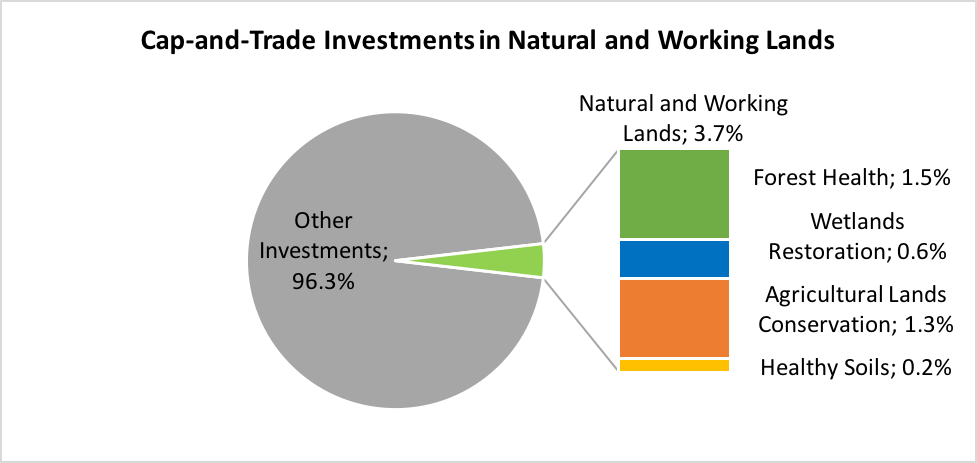California’s Cap-and-Trade Extension Holds Promise for Forests
 Pacific Forest Trust is pleased that California’s cap-and-trade program was recently extended to 2030 as it’s an important tool for protecting and restoring natural and working lands for climate change benefits. The extension of cap-and-trade continues California’s global leadership on climate change and important climate investments in forests.
Pacific Forest Trust is pleased that California’s cap-and-trade program was recently extended to 2030 as it’s an important tool for protecting and restoring natural and working lands for climate change benefits. The extension of cap-and-trade continues California’s global leadership on climate change and important climate investments in forests.
There were some compromises needed to pass Assembly Bill 398 (AB 398), and two related pieces of legislation, with the bipartisan support necessary for the supermajority vote. However, the mechanism for reducing carbon pollution remains sound and the extension of cap-and-trade continues California’s leadership on climate change at the national and global scale, including paving the way for efforts in Oregon to establish a cap-and-trade system of their own.
The cap-and-trade program allows for polluters to offset some of their emissions with real, permanent, and verifiable emissions reductions that occur outside the cap. Forest offset projects, such as the Van Eck Forest, have helped California achieve climate goals while creating a new opportunity for tribes, communities, and forest owners to manage their forests for climate gains. AB 398 continues this offset program, albeit at a reduced rate, and introduces a new preference for offset projects that directly benefit Californians.
Cap-and-trade also creates auction revenues that can be reinvested in programs to further reduce emissions. The investment of these revenues in natural and working lands has been some of the most cost-effective in terms of the tons of pollution reduced per dollar spent. This is no surprise, as unlike most other solutions, forests and other lands can actually take carbon out of the atmosphere.
However, these worthwhile investments in natural and working lands have historically received less than 4% of the funds, despite being the fifth pillar of the state’s climate change plan and covering 70% of the state’s land area. With the cap-and-trade program now secure through 2030, we will continue our efforts to increase and coordinate climate change investments in these lands which provide not only climate benefits, but also support wildlife, sustain rural economies, and secure water supplies.
 Source: Air Resources Board Auction Proceeds 2017 Annual Report
Source: Air Resources Board Auction Proceeds 2017 Annual Report
Photo credit: Robert Ashworth
